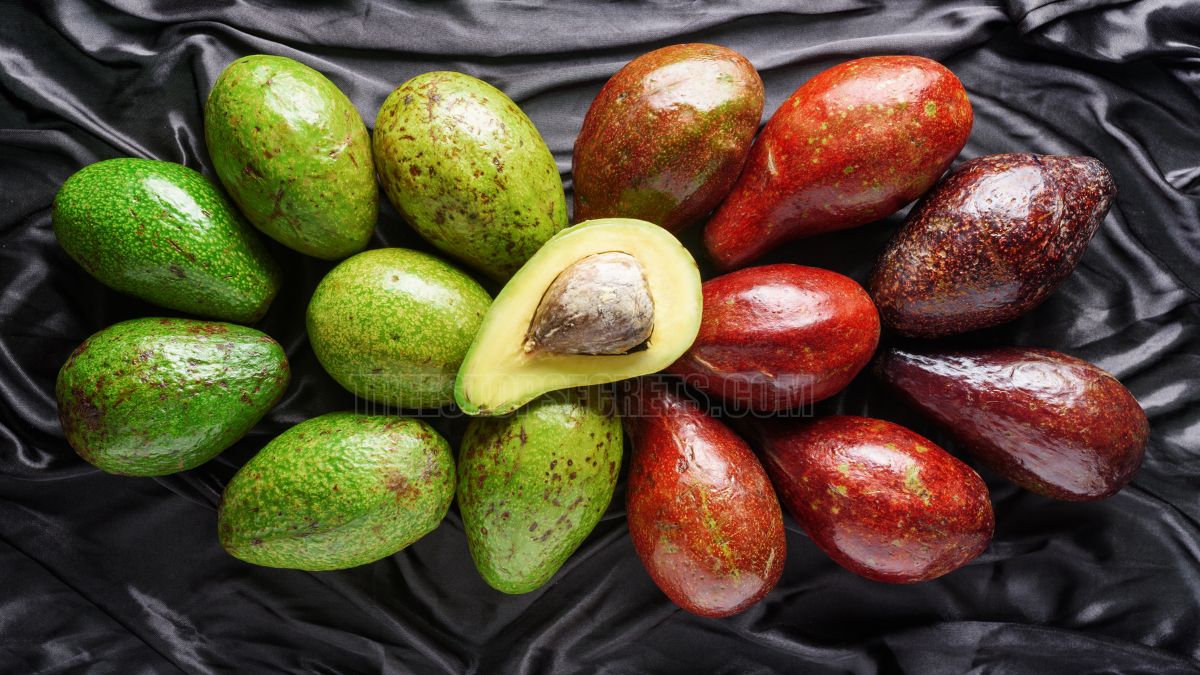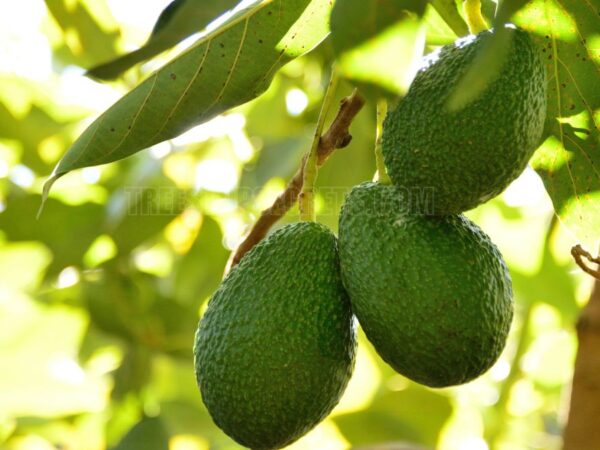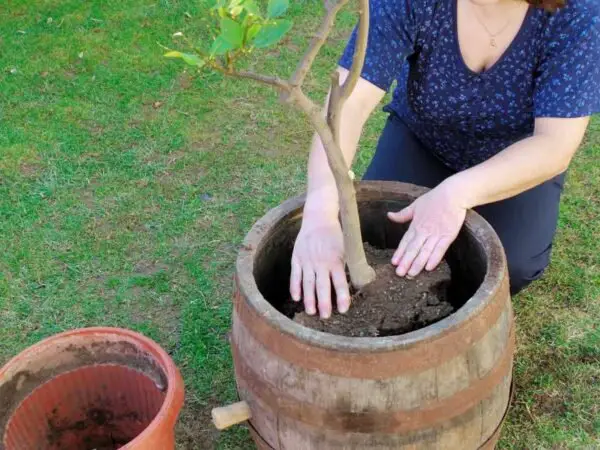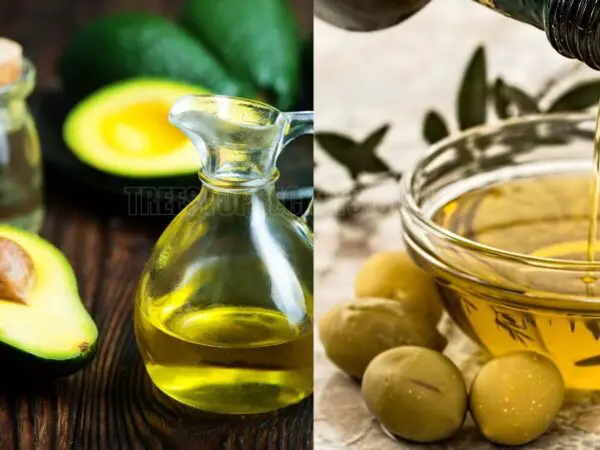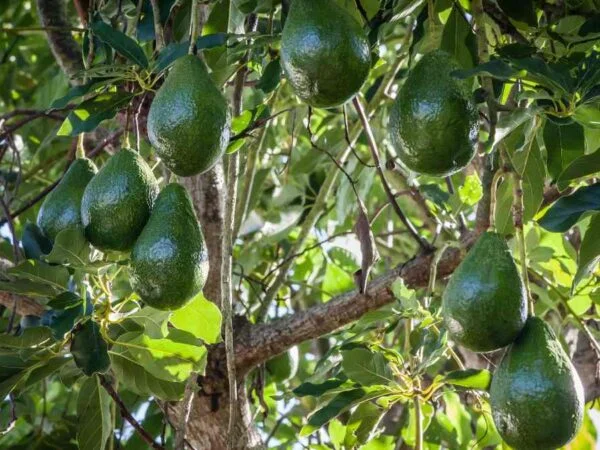Avocados are a beloved fruit enjoyed worldwide, but did you know there are numerous varieties? Whether you’re an avocado enthusiast or just curious, understanding the different types can be a fun journey. From creamy Hass to the lesser-known Bacon and Fuerte, each variety brings its own unique flavor and texture. In this article, we’ll explore how many avocado varieties exist, and how these different types can be used in your favorite dishes.
There are over 500 known avocado varieties, but the most popular type is the Hass avocado. This variety makes up about 80% of the global avocado market due to its rich, creamy texture and year-round availability. Other common varieties include Bacon, Fuerte, and Zutano, each with distinct characteristics that suit various culinary uses.
Curious to know which avocado variety is the best for guacamole or salads? Keep reading to find out how each variety adds a unique twist to your favorite recipes. Whether you’re a fan of the classic Hass or want to try something new like Fuerte, this guide will help you choose the perfect avocado for any dish.
Exploring Avocado Types
A World of Avocados
Ever think about how many types of avocados are out there? It’s wild! Just in Florida, they’re growing 56 different kinds (Healthline). And that’s just one state! Imagine the whole world—it’s like an avocado buffet. So, whether you want something creamy and rich or light and nutty, there’s an avocado with your name on it.
| Region | Number of Varieties |
|---|---|
| Florida | 56 |
| California | A bunch |
| Worldwide | Hundreds |
First-timers or those looking to plant their own avocados might think they’re in over their heads. Each variety brings something special to the table, making them awesome for cooking or just munching straight from the tree.
Where They Come From and What They’re Like
Every avocado on the planet hails from one of three main groups: Guatemalan, Mexican, or West Indian. This mix of genes is what gives avocados their unique flavors, sizes, and shapes. It’s like a family tree but tastier (Healthline).
| Avocado Group | What They’re Known For | Example Varieties |
|---|---|---|
| Guatemalan | Smooth skin, big size, creamy | Hass, Bacon |
| Mexican | Thin, bumpy skin, small, rich | Fuerte, Pinkerton |
| West Indian | Big, smooth, mild taste | Lula, Bacon |
These traits not only change how they taste but also how they grow in different places. Knowing where they come from can help you pick the right ones for your garden or the best ones at the store. The sheer number of avocado options out there is mind-blowing and a thrilling adventure for anyone into gardening or cooking.
Getting the Lowdown on Avocado Types
Let’s talk avocados! If you’re like me, you love these green gems smashed on toast, blended into smoothies, or as the main squeeze in guacamole. But did you know there are different types of avocados with their own quirks?
A-Type vs. B-Type Avocados
First up, we’ve got A-type and B-type avocados. Sounds a bit techy, right? Don’t worry, it’s all about their flowers and when they’re ready for some pollination action.
| Type | Pollination Time | Flower Details |
|---|---|---|
| A-Type | Morning as female, afternoon as male | Best fruit set when paired with a B-type buddy |
| B-Type | Afternoon as female, morning as male | Needs an A-type friend for better yields |
I know, it’s like dating advice for plants! If they sync up their flowering times right, you end up with more avocados. So, if you’re growing them, mix A-types and B-types to get a bumper crop.
California vs. Florida Avocados
In the U.S., avocados are mainly from California and Florida. And oh boy, do they have distinct personalities.
| Region | Variety | Size | Skin | Taste |
|---|---|---|---|---|
| California | Hass | Small | Rough and bumpy | Rich and creamy goodness |
| Florida | Florida Avocado | Big | Smooth | Light and mild |
California’s Hass avocados are like the rockstars—we all know ’em and love ’em. They’re the go-to for creamy guac or spread on toast. Florida avocados are the gentle giants. They’re bigger, smoother, and their subtler taste makes them perfect for salads and tacos.
Knowing the difference helps me pick the right avocados for my kitchen masterpieces. Plus, it’s a fun fact to drop at parties! Pro tip: For guacamole that’s pure magic, stick with Hass. But if you want to try something new, toss a Florida avocado into a fresh salsa (Check out Greatist for more).
So, there you go! A quick dive into the fantastic avocado varieties can really amp up your cooking game, whether you’re growing them or just grabbing the best ones at the store. Happy avo-shopping!
Avocado Varieties That'll Rock Your World
Can’t decide which avocado hits the spot? You’re in good company. Avocados come in a bunch of different varieties, and each has its own flavor and style. Let's dig into some of the crowd-pleasers.
Hass Avocado
The Hass avocado is the undisputed champion of the avocado world. Seriously, it’s the gold standard. In the U.S., it commands the market with 95% of sales. Originating from California in the 1920s, it’s adored for its creamy texture and rich, buttery taste. This avocado isn’t just a snack; it’s an experience.
| Feature | Description |
|---|---|
| Origin | Guatemalan |
| Skin Color When Ripe | Dark purple to black |
| Typical Size | Medium to large |
| Flesh Texture | Creamy and smooth |
Bacon Avocado
If you enjoy a mild, less intense avocado, Bacon avocados are your go-to. Named after James Bacon, these avocados are pretty easy to peel and have a lighter taste. Found mainly in California and Mexico, they thrive in sunny weather and offer a subtler flavor for your dishes.
| Feature | Description |
|---|---|
| Origin | California, Mexico |
| Skin Color When Ripe | Green |
| Typical Size | Medium |
| Flesh Texture | Mild and creamy |
Reed Avocado
Say hello to the Reed avocado, your go-to for a rich, nutty taste. These avocados are big – like, can-grow-bigger-than-a-softball big. Their skin stays green even when they’re ripe, making them stand out visually as well as in flavor.
| Feature | Description |
|---|---|
| Origin | California |
| Skin Color When Ripe | Green |
| Typical Size | Large (up to 1 pound) |
| Flesh Texture | Rich and nutty |
Lula Avocado
Don't sleep on the Lula avocado. It might not be in the spotlight as much, but with its smooth, creamy flesh and a hint of nuttiness, it's a hidden gem. It has thick, pebbly skin that turns a greenish-yellow when ripe, a sure sign it’s ready to eat.
| Feature | Description |
|---|---|
| Origin | Florida, California |
| Skin Color When Ripe | Greenish-yellow |
| Typical Size | Medium to large |
| Flesh Texture | Creamy and slightly nutty |
Unwrapping these avocado types opens up a world of flavors just waiting to spruce up your dishes. Whether you’re whipping up some guac or tossing slices into your salad, each avocado variety brings its own flair.
Hidden Avocado Treasures
Strolling through the avocado aisle, you’ll likely pass up some of the lesser-known but utterly delightful varieties. Let’s chat about three avocados you should get to know better: Gwen, Pinkerton, and Monroe.
Gwen Avocado
Ever heard of the Gwen avocado? Yeah, me neither at first. Picture this: the smooth taste of a Hass with a lime-green twist. That’s Gwen for you! Born in 1984, thanks to the brainiacs at the University of California, Riverside (Greg Alder), Gwen looks fancy with its Fuerte-inspired green jacket but hits you with nearly double the fruit of a Hass per acre (Greg Alder).
Now, while Gwen had a rocky start with some fruit drop issues, it evened out as the trees got older. And hey, some folks might prefer black-skinned avocados, but Gwen’s bringing the green back in vogue.
| Feature | Gwen Avocado |
|---|---|
| Released | 1984 |
| Yield per Acre | ~Double of Hass |
| Skin Color | Green |
Pinkerton Avocado
Next up, the Pinkerton avocado—say goodbye to boring round avocados. This guy’s got an elongated look and an irresistible nutty flavor. Pinkertons, with their creamy insides and high oil content, are perfect for spreading on toast or whipping into a dip that’ll make you feel gourmet.
Plus, Pinkertons pack a thicker punch with their skin, meaning they stand up better during their cross-country travels. So, if you’ve got a medium or large avocado craving, Pinkerton's calling your name.
| Feature | Pinkerton Avocado |
|---|---|
| Shape | Elongated |
| Flavor | Nutty and creamy |
| Skin | Thicker than Hass |
Monroe Avocado
Last but definitely not least, let’s talk Monroe. This big, bold avocado isn’t just for any ol’ salad. Want a creamy, nutty flavor bomb with every bite? Monroe’s got you covered. With its hardy skin, it travels well, perfect for avocado lovers everywhere.
What’s cool about Monroe? It’s a late bloomer. Literally. The harvest season kicks in later, so this avocado helps stretch out the joy of avocado season. Enjoy guacamole in the winter? Monroe says, “No problem!”
| Feature | Monroe Avocado |
|---|---|
| Size | Large |
| Flavor | Rich and nutty |
| Harvest Time | Late Season |
So, next time you're avocado shopping, don’t just grab the usual. Give Gwen, Pinkerton, and Monroe a try. They might not be the star of the show, but they sure know how to steal the spotlight where it counts—in your kitchen.
Choosing Your Avocado
Picking the right avocado variety isn't just about the type you buy but also where you plan to grow it. Seriously, this can change your guac game and garden life completely. Here’s what I've learned will help you decide which avocado types to plant or purchase.
What to Think About
Alright, when choosing which avocado varieties to go for, here's what I check out:
- Where You Live: Different avocados like different weather. Figuring out what’s ideal can make growing them way easier.
- Looks: Avocados come in all shapes and sizes. For instance, a Hass avocado is small with a bumpy skin, perfect for creamy dishes. On the flip, Florida avocados are larger and smoother.
- Taste: Every variety has its own flavor. Hass is rich and buttery, but some others are milder. It’s all about what tickles your taste buds.
- When They Grow: Knowing the maturing season of each type helps you pick varieties so you're always in stock.
Check out this quick rundown comparing some popular avocado types:
| Variety | Size | Shape | Flavor | Favorite Weather |
|---|---|---|---|---|
| Hass | Small | Oval | Rich, creamy | Mediterranean |
| Florida | Large | Round | Mild | Tropical |
| Bacon | Medium | Oval | Buttery | Mild, temperate |
| Pinkerton | Medium | Oval | Creamy | Temperate, mild |
Always Have Fresh Avocados Mix
To keep avocados handy all year, mixing varieties is a smart move. California pros combine Hass, Reed, and Pinkerton varieties for a non-stop harvest. Gwen and Lamb are also solid backups to Hass.
Here's a cheat sheet for year-round avocado cultivation:
| Variety | Best Season | Harvest Time |
|---|---|---|
| Hass | Spring to Fall | Year-round |
| Reed | Summer to Fall | Late Spring to Fall |
| Pinkerton | Winter to Spring | Early Winter to Spring |
| Gwen | Summer to Fall | Late Spring to Fall |
| Lamb | Fall to Winter | Late Fall to Winter |
By picking a mix of these varieties and thinking about the factors above, you can feast on fresh avocados all year. Whether they're going in your salads, becoming guacamole, or just topping your toast, varying your avocados makes eating them even better!
The Nutritional Goodness of Avocados
Avocados are more than just that creamy, tasty addition to your meals—they're nutrition powerhouses. I love having these green gems in my diet, and I'm here to spill the beans (or rather, the avocados) on their health benefits.
Packed With Nutrients
Avocados (often dubbed as the 'alligator pear') are small but mighty in nutrients. Let's look at what you get in a 50-gram serving (about one-third of a medium avocado):
| Nutrient | Amount |
|---|---|
| Dietary Fiber | 3.4 g |
| Folate | 44.5 μg |
| Pantothenic Acid | 0.73 mg |
| Copper | 85 μg |
| Vitamin K | 10.5 μg |
| Monounsaturated Fats | 5 g |
| Oleic Acid | 4.53 g |
| Calories | 80 kcal |
Despite their rich texture, avocados have a low energy density, which means they offer fewer calories per gram—helpful if you're watching your weight. They’re loaded with monounsaturated fats, the kind that's good for your heart.
Health Perks
Adding avocados to your menu does wonders for your health. Here’s how:
- Better Diet: Folks who eat avocados tend to have a more balanced diet overall. Think more fruits and veggies, less added sugar, and a higher intake of essential nutrients like fiber, vitamins E and K, magnesium, and potassium. Not bad, right? (Source)
- Boost Nutrient Uptake: Want to get the most nutrients from your veggies? Pair them with avocados. The healthy fats in avocados help your body absorb fat-soluble nutrients like carotenoids. Add them to your salsa or salad and get more lycopene, β-carotene, and lutein, which are great for your eyes and brain! (Study)
- Heart Health: Consistent avocado munching can improve heart health. They can boost your HDL (the good cholesterol), lower triglycerides, and reduce LDL (the bad cholesterol). Your heart will thank you. (Research)
To wrap it up, avocados aren’t just tasty—they're a nutrient-packed powerhouse. I always aim to include them in my meals, not just for the flavor but for the abundant health benefits they offer.
So, next time you're thinking about what to add to your salad, toast, or smoothie, give avocados a try. It’s a small change with big benefits.
How Many Avocado Varieties Exist: What You Need to Know
Understanding the vast number of avocado varieties can help you make the best choice when preparing meals. From the creamy Hass to the mild Bacon, each type offers something unique. Whether you’re cooking for health benefits or taste, knowing which variety to pick can make a big difference in your culinary adventures.
FAQs about "How Many Avocado Varieties Exist":
Q: What is the most common avocado variety?
A: The most common avocado variety is the Hass avocado. It accounts for approximately 80% of the avocados sold worldwide due to its creamy texture and long shelf life.
Q: How many avocado varieties are there in total?
A: There are over 500 recognized avocado varieties, though only a handful are commonly sold in stores. The top varieties include Hass, Bacon, Fuerte, and Zutano.
Q: What avocado variety is best for guacamole?
A: Hass avocados are typically the best for guacamole because of their creamy texture and rich flavor. They blend well, making them ideal for smooth dips.
Q: Can I grow different avocado varieties at home?
A: Yes, you can grow different varieties of avocados at home depending on your climate. Hass, Fuerte, and Bacon are popular options for home cultivation.
Q: What are the differences between Hass and Fuerte avocados?
A: Hass avocados are known for their creamy texture and dark, bumpy skin, while Fuerte avocados have a smoother, thinner skin and a more mild flavor.
Image Source: Paid image from CANVA

